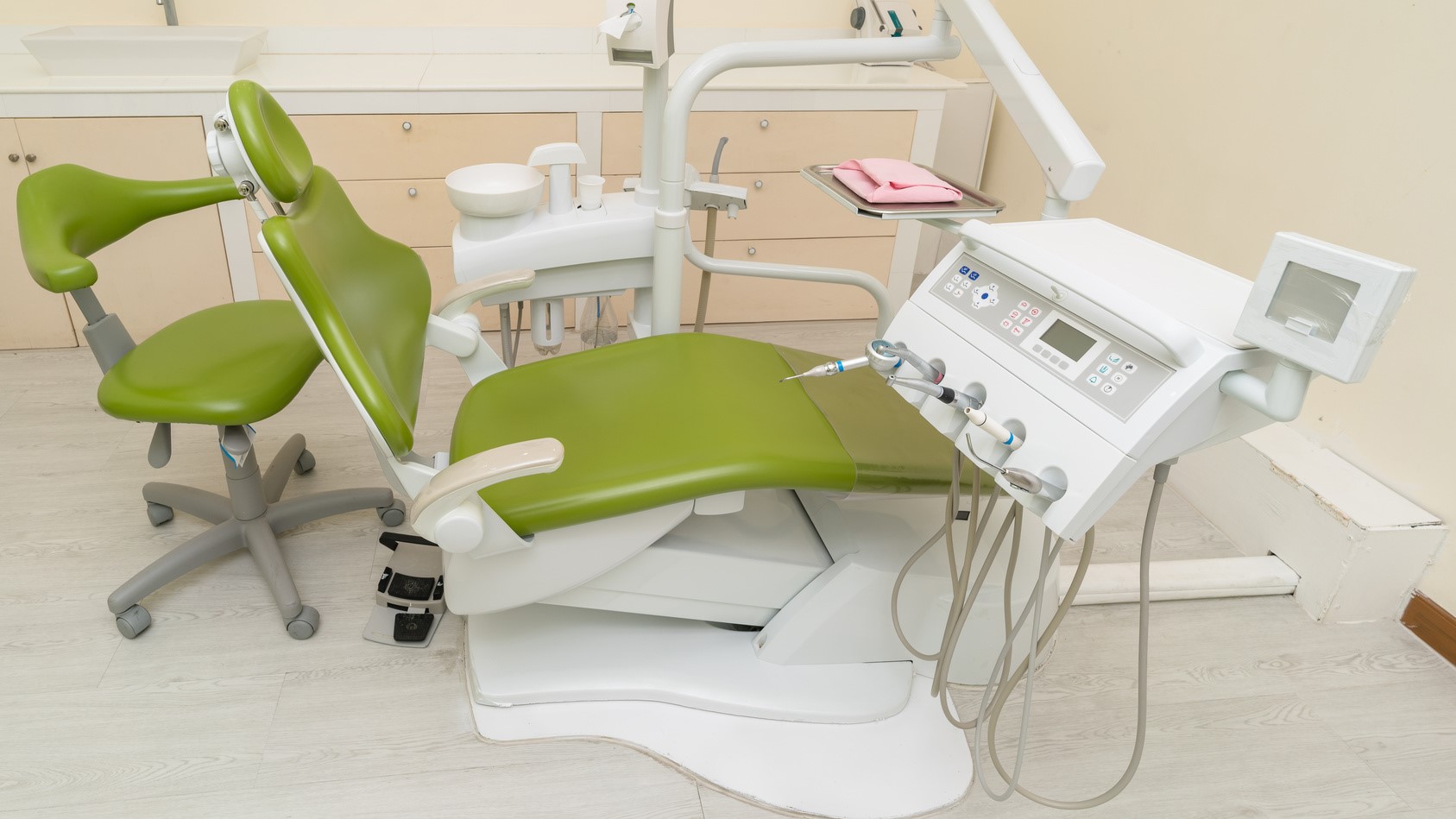
Form a professional dental corporation, in California, if you are a California dentist, with a private practice or working as an independent contractor, for tax savings and additional liability protection.
by Zach Javdan
October 21, 2022
Forming a professional dental corporation in California is a great way for California dentists to save on taxes (specifically by setting up an S corporation) and increase liability protection.
While dental corporations do not provide protection for dental malpractice, they do provide liability protection in other contexts.
For example, a dental corporation could provide liability protection in case of a contract dispute, employee lawsuit or office lease dispute.
Other benefits of forming a California dental corporation include continuity and business credibility.
Be sure to consider the following factors when starting a dental corporation in California. Failure to do so could lead to invalidation of the corporation in case of a lawsuit or audit.
Consult with a California Business Formation Attorney When Forming a California Dental Corporation
Simply put, always consult with a business formation attorney when forming a professional dental corporation in California.
While taking the cheapest and simplest route might be tempting, doing so can come back to haunt you in case of an audit or lawsuit.
Make sure the attorney has specific experience with forming corporations for dentists.
It is important to discuss things like, formalities, liability issues, tax questions, timing, and more.
If you would like a licensed California incorporation attorney to handle your dental corporation formation, simply get the process started securely online or call us at (310) 765-2525.
Consider Timing
Timing is also an important factor when forming a California dental corporation.
If you are starting a new dental practice, consider forming your professional dental corporation beforehand.
If you wait until later, you will have to deal with executing new contracts and other records.
Keep things simple by using your dental corporation from day one.
California Dentists Cannot Practice Dentistry Using an LLC
It is important to note that, pursuant to California Corporations Code §17375 California does not allow dentists, and most other licensed professionals, to use a Limited Liability Company (LLC) in connection with their license.
California dentists are only permitted to form a specific type of corporation known as a dental corporation. Specifically, a professional dental corporation.
Determine Eligibility
Make sure that all of the officers, directors and shareholders (owners) of the dental corporation are qualified.
Pursuant to California Corporations Code section 13401.5 the following licensed persons may be shareholders, officers, directors, or professional employees of a California dental corporation as long as (a) the sum of all shares owned by the licensed persons does not exceed 49 percent of the total number of shares of the dental corporation and (b) the number of those licensed persons owning shares in the professional corporation does not exceed the number of licensed dentists:
(1) Licensed physicians and surgeons.
(2) Dental assistants.
(3) Registered dental assistants.
(4) Registered dental assistants in extended functions.
(5) Registered dental hygienists.
(6) Registered dental hygienists in extended functions.
(7) Registered dental hygienists in alternative practice.
Pursuant to California Corporations Code section 13403, when a dental corporation has one shareholder, that shareholder shall be the director, president and treasurer of the corporation. Other officers of the corporation are not required to be licensed individuals.
When a dental corporation has two shareholders, the shareholders shall be the directors and, among them, hold the positions of president, vice president, secretary and treasurer of the corporation. Other officers of the corporation are not required to be licensed individuals.
A California Dental Corporation with More than One Owner Should Have a Buy-Sell Agreement
Buy-Sell agreements (also known as shareholder agreements) account for things like what happens to a corporation when a shareholder is incapacitated, passes away, divorces or decides to sell their shares to someone else.
Failing to have one drafted and executed, for a California dental corporation, can be devastating.
Be sure to consult with a California business law specialist about creating a buy-sell agreement for your California dental corporation.
Determine Whether a C or S Corporation is Better
California professional dental corporations can be taxed two ways.
Option one, which is the default tax classification, is to be taxed as a “C” corporation.
The second option is to be taxed as an “S” corporation.
California dentists sometimes fail to realize the the C corporation and S corporation designations are made with the Internal Revenue Service, while the dental corporation, itself, is formed with the California Secretary of State.
Corporations are taxed as C corporations, by default.
If IRS Form 2553 is filed with the IRS, the dental corporation is treated as a “small business corporation” which is also known as an S Corporation.
C corporations are classified as separate entities for tax purposes.
Accordingly, the C corporation files its own tax return and pays its own income taxes.
In turn, the dental corporation’s shareholders (owners) file their own and separate tax returns, which corresponds to income the corporation pays to them, in an individual capacity.
This results in what is commonly referred to as “double taxation.”
While not necessary problematic under all circumstances, California dental corporation owners typically prefer to have their corporations taxed as “S” corporations.
The primary benefit of the S corporation is avoiding the double taxation associated with C corporations. This is known as “pass-through” taxation.
Most accountants recommend forming an S corporation for possible savings on payroll taxes so be sure to consult with a California accountant regarding whether a C or S corporation is best for your dental practice.
Naming a California Dental Corporation
Pursuant to California Business and Professions Code Section 1804, a California dental corporation name must contain the full name, or last name, of the dentist (as it appears on their dental license), followed by Dental Corporation, Incorporated, Corporation, Inc. or Corp.
An example of a permissible dental corporation name is John Doe DDS, Inc.
A Fictitious Name Permit must be obtained from the California Dental Board if you would like to conduct business using a name other than the official dental corporation name.
The Fictitious Name Permit application requires that you provide the Dental Board with a copy of the dental corporation’s articles of incorporation.
The cost is either $650 or $325, depending on when the qualifying license will expire.
Permit obtainment process takes approximately 75 days. Notices of deficiency take approximately 30 days.
Permits expire when the qualifying license expires and must be renewed biennially. The renewal fee is $325.
It’s also important to check name availability, with the Dental Board, before applying for a Fictitious Name Permit.
Determine Who the Agent of Service of Process Will Be
All California dental corporations are required to designate an agent of service of process (also known as a registered agent).
The registered agent must be available, from 9-5 daily, at a California physical address.
Failure to be present during regular business hours can result in a default judgement (which means the plaintiff automatically wins) in case of a lawsuit.
An individual (e.g., any officer, director or shareholder of the corporation) can serve as agent.
Alternatively, you can hire a qualified company to serve as agent on your behalf.
Benefits of hiring a registered agent include privacy and freedom (not having to be available during business hours).
If you designate yourself as registered agent make sure you are at the designated address during business hours.
File the California Dental Corporation Articles of Incorporation
Filing Articles of Incorporation of a Professional Corporation with the California Secretary of State is the official first step in forming a California dental corporation.
The Articles of Incorporation should include the corporation name, the business address, the registered agent name and address, number of shares authorized and corporation purpose.
The Articles should also be customized to include indemnification provisions.
Prepare Organizational Corporate Minutes
The corporation should prepare organizational corporate minutes which, among other things, appoint the corporation’s directors and officers.
Minutes are important for the dental corporation to have in case of lawsuit or audit.
Annual corporate minutes are also mandated by California law.
Prepare Bylaws
The corporation’s operating procedures and rules are set forth by the corporation’s directors via Bylaws.
Bylaws dictate the how the corporation is operated, where the corporation is located, time, place and manner of shareholder meetings, director powers, numbers, elections and indemnification, officer types, duties and meetings, stock issuance, record keeping and general matters.
Bylaws are an integral and official part of the records of the corporation and must be presented for review in case of a lawsuit or audit.
Failing to have bylaws could be a factor toward piercing the corporate veil in case of a lawsuit.
Issue Stock to the Shareholder(s)
Stock issuance is an often overlooked and important part of the corporation formation process.
Shareholders are the owners of the corporation and their ownership must be documented by shares of stock.
Stock certificates should include the corporation name, shareholder name, number of shares issued, number of shares authorized, date of issuance and should be signed by the secretary and president of the corporation.
Another often overlooked step when starting a dental corporation is inclusion of language restricting ownership to licensed individuals as dictated by California Corporations Code section 13401.5.
Prepare a Stock Ledger
A stock ledger is a log which documents the shareholders, number of shares issued and issuance date.
The stock ledger is also be used to document any future stock issuance and transfers.
Obtain an Employer Identification Number (EIN)
An EIN, which is also known as Tax ID Number (TIN) is an identifying number issued by the IRS for newly formed corporations. An EIN can be likened to a Social Security Number for a business.
The EIN is used to open the dental corporation bank account and file taxes.
IRS Form SS-4 is used to obtain an EIN.
The EIN can also be obtained online via the IRS website.
Frequently asked questions and answers can be found via the IRS Form SS-4 instructions.
File IRS Form 2553 (S Corporation Election)
IRS Form 2553 should be filed with the IRS, within 75 days of formation, if the corporation will be taxed as an S corporation.
Form 2553 is required to include the corporation name, formation date, address, EIN, representative and shareholders (and any spouses holding a community property interest).
Frequently asked questions and answers can be found on the IRS Form 2553 instructions.
File a Statement of Information
A Statement of Information, must be filed with the California Sec. of State, within 90 days of incorporation. Failure to file will result in assessment of a $250 penalty and corporation suspension.
The Statement of Information must include the dental corporation’s name, California Secretary of State entity number, business address, mailing address (if different), officers, directors, registered agent and type of business.
File a Limited Offering Exemption Notice
A Limited Offering Exemption Notice should be filed with the CA Dept. of Financial Protection and Innovation within 15 days of stock issuance, a If the value of stock is less than $25,000, the filing fee is $25.
Failure to file can result in a penalty being assessed.
The limited offering exemption notice serves to let the government know that you are not selling stock to third parties and to exempt you from further securities filings.
Open a Bank Account for the California Dental Corporation
A bank account should be opened shortly after the dental corporation is formed.
The account should exclusively be used for financial transactions associated with the corporation.
Commingling of business and personal funds should be avoided at all costs since doing so could lead to invalidation of the corporation in case of a lawsuit.
The stock ledger should reflect the amount being deposited into the bank account in exchange for shares.
Obtain a Local Business License
Most cities require corporations operating within their boundaries to obtain a business license and pay local taxes.
The CAlGold website will help determine which licenses and permits are required for your new entity.
Notify Third Parties About the California Dental Corporation
All parties the corporation has a business relationship with should clearly know that they are dealing with a corporation.
All contracts should be executed in the name of the corporation.
Also be sure to notify insurance carriers about the new corporation.
Consult With an Accountant
Meet with an accountant immediately after the corporation is formed to discuss state and federal income, payroll and other taxes.
Always stay in touch with your accountant to ensure you stay on top of all tax filing and payment deadlines since the government will not remind you about filing deadlines.
For example, there is an $800 annual franchise tax payment due, starting after the first calendar year of existence.
The California Franchise Tax Board will not remind you about the $800 minimum tax payment.
Accordingly, it is important to be working with a good accountant that can keep you on top of such requirements.
Failure to file and pay taxes can lead to invalidation of the corporation in case of a lawsuit so stay on top of taxes and try to find an experienced business accountant.
California Dental Corporation Corporate Formalities
Being afforded the protection of the corporate structure entails that you comply with all formalities associated with being a corporation.
Be sure to prepare corporate minutes on an annual basis.
Also make sure you file the corporation’s statement of information annually.
Mark your calendar and remain compliant since failure to do so could result in penalties and invalidation of the corporation in case of a lawsuit.
Comply with the Corporate Transparency Act
In January of 2024, a new federal law called the Corporate Transparency Act is going into effect which requires that corporation ownership be disclosed to the Dept. of Treasury Financial Crimes Enforcement Unit (FinCEN).
The purpose of the new law is to clamp down on money laundering, tax evasion, cyber crime, terrorism and other nefarious acts facilitated by corporations and LLCs.
Willful violations of the Corporate Transparency Act can result in penalties of $500 per day (up to $10,000) and even prison time.
Accordingly, be sure to comply once the law goes into effect.
Call (310) 765-2525 for a free attorney consultation or simply visit here to start your California professional medical corporation online:
ALSO SEE: How to Form a California Medical Corporation













